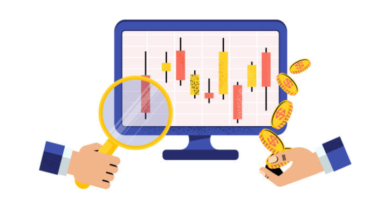
The Impact of Advanced Software Solutions on Termite and Pest Control Management
The Pest Control Landscape
Pest control has traditionally been a labor-intensive industry, characterized by a reliance on manual processes and on-site management. Over the years, businesses in this sector have faced numerous challenges: fluctuating pest populations, regulatory pressures, and the need for consistent customer service. As the industry evolves, the advent of advanced software solutions presents a game-changing opportunity for pest control companies, especially in the realm of termite management. This article explores the numerous benefits of these software solutions and how they are reshaping the landscape of termite and pest control management.
Streamlining Operations
One of the most significant advantages of integrating advanced software solutions into pest control management is the ability to streamline operations. Gone are the days when technicians had to rely on paper forms and manual record-keeping. Modern termite and pest control software allows for electronic documentation, scheduling, and reporting, significantly reducing administrative burdens. These tools automate routine tasks, making it easier for businesses to focus on delivering effective pest control services.
Moreover, with real-time data tracking, pest control companies can monitor treatments, client interactions, and service history more efficiently. This level of organization not only improves operational efficiency but also enhances customer satisfaction. Clients appreciate timely service delivery and clear communication, both of which are made possible through sophisticated software systems.
See also: Why Businesses Should Prioritize Cyber Threat Intelligence in 2025
Enhanced Data Management
Data management has emerged as one of the cornerstones of effective pest control. With advanced software solutions, companies can collect and analyze vast amounts of data related to pest populations, treatment effectiveness, and customer feedback. This information can be invaluable for guiding future business decisions.
For instance, by analyzing historical data on termite infestations, companies can identify trends and predict future occurrences. This predictive capability enables businesses to proactively address potential infestations before they escalate, saving both time and money. Moreover, businesses can tailor their services to meet the specific needs of different clients, increasing the likelihood of customer retention and satisfaction.
Improved Customer Relationship Management
Customer relationship management (CRM) is crucial in any service-oriented industry, and pest control is no exception. Advanced software solutions come equipped with integrated CRM features that allow companies to maintain detailed records of client interactions, preferences, and service history.
This level of detail fosters better communication between technicians and clients, allowing for personalized service. For example, a pest control technician can quickly access a client’s history and provide tailored advice during a service call. This improves the overall client experience and builds long-lasting relationships based on trust and reliability. Furthermore, automated reminders for follow-up treatments or inspections can ensure that clients remain engaged, ultimately leading to increased business.
Real-Time Monitoring and Communication
In an industry where time is often of the essence, real-time monitoring and communication capabilities offered by advanced software solutions are invaluable. Technicians equipped with mobile devices can access essential information, such as treatment protocols and client notes, while in the field. This access allows them to respond more effectively to emerging situations.
Additionally, clients can receive real-time updates about their service appointments, including technician arrival times. This transparency not only enhances customer satisfaction but also reduces no-shows and missed appointments. Improved communication channels foster a sense of reliability, ensuring that clients feel informed and valued throughout the pest control process.
Compliance and Safety Management
The pest control industry is subject to various regulations, especially concerning safety and environmental impact. Advanced software solutions can play a vital role in ensuring that companies remain compliant with these regulations. By providing tools for tracking and documenting compliance-related activities, software platforms help businesses navigate the complexities of regulatory requirements.
For instance, software solutions can alert technicians to required safety measures or document treatment applications in a manner that meets local and state regulations. This not only protects the company from potential legal issues but also enhances the safety of employees and customers alike. In an age where consumer awareness about environmental issues is on the rise, demonstrating compliance can also serve as a unique selling point for pest control companies.
Training and Employee Management
Another area where advanced software solutions have made a significant impact is in the training and management of employees. With integrated learning management systems, pest control companies can provide ongoing training and certification for their staff. These platforms enable technicians to stay updated on the latest pest control methods, safety standards, and technologies.
Additionally, effective employee management tools can help track performance metrics and identify areas for improvement. Businesses can utilize this information to create targeted training programs, ensuring that their workforce remains highly skilled and knowledgeable. This focus on employee development ultimately translates into better service for clients, further solidifying the company’s reputation in the marketplace.
The Future of Pest Control
As the pest control industry continues to embrace advanced software solutions, the potential for growth and innovation is immense. The integration of artificial intelligence and machine learning into these platforms holds the promise of even greater advancements. These technologies can enhance predictive analytics, optimize resource allocation, and improve the overall effectiveness of pest control interventions.
In conclusion, the impact of advanced software solutions on termite and pest control management cannot be overstated. From streamlining operations to enhancing customer relations and ensuring compliance, these tools have the potential to revolutionize the industry. As pest control companies adopt these innovations, they not only improve their own efficiencies but also contribute to a more sustainable and effective approach to pest management. The future of pest control is bright, driven by technology and a commitment to excellence in service.




